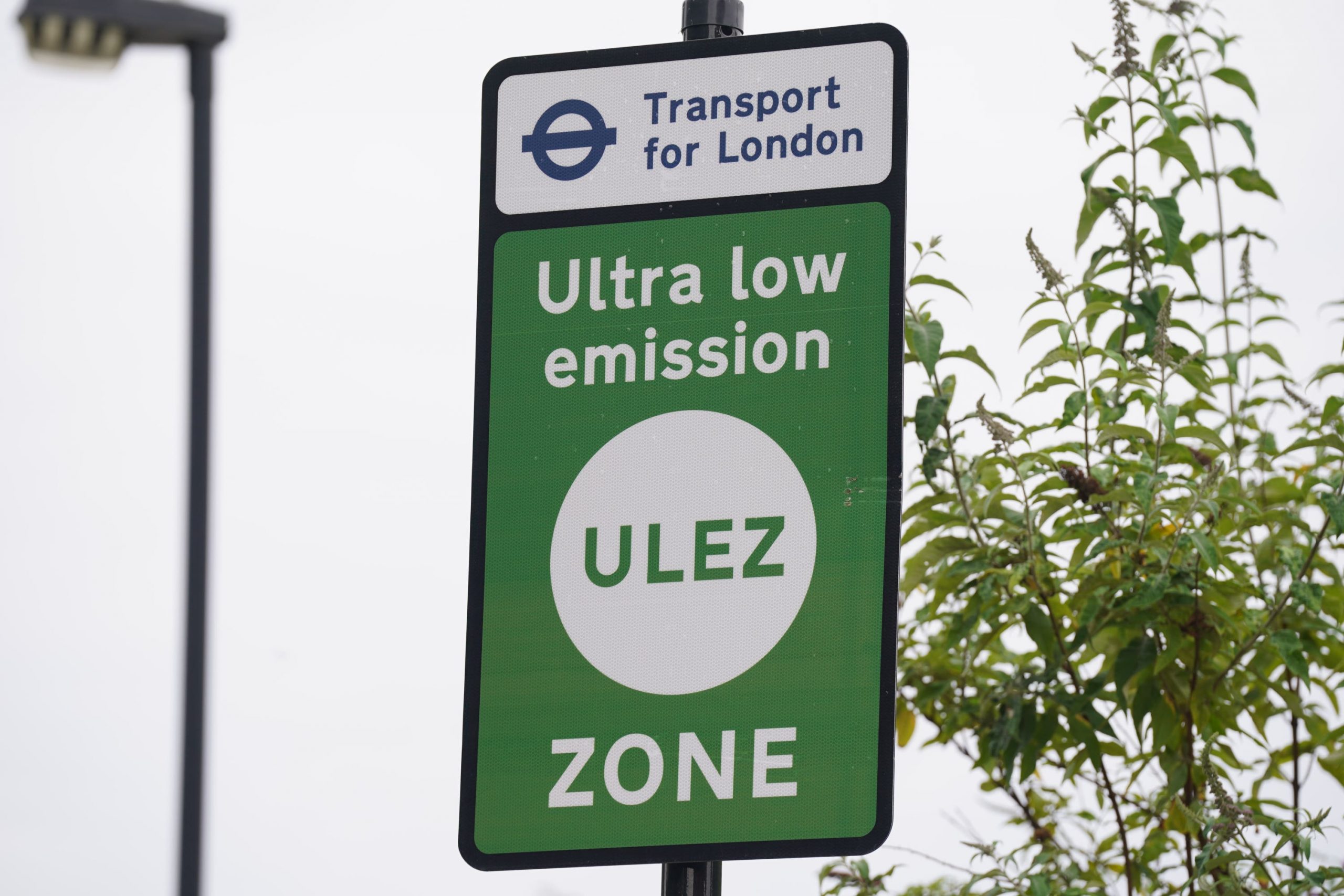Drivers will be subjected to London’s ultra low emission zone (Ulez) rules if they move off official diversion routes during this weekend’s M25 closure.
National Highways said anyone ignoring diversion signs in an attempt to find shorter alternative routes will be liable for the £12.50 daily Ulez fee if their vehicle does not meet minimum emissions standards.
Failure to pay the charge when required can result in a £180 fine, reduced to £90 if paid within 14 days.
The M25 will be closed in both directions between Junctions 9 and 10 in Surrey from 9pm on Friday until 6am on Monday while concrete beams for a new bridge and a gantry are lifted into place.
Drivers are being advised to avoid the area if possible.
Diversion routes will take cars on a 19-mile journey on A roads, crossing from Surrey into London’s Ulez area.
National Highways senior project manager Jonathan Wade told the PA news agency: “Although the (Ulez) cameras will be active, no enforcement action will be taken.
“However, if you ignore the diversion signs and do your own thing, then if your vehicle’s not compliant you do run the risk of getting caught.
“You’ll be perfectly safe as long as you follow the diversion routes.”
There are concerns sat navs could direct some drivers on to minor roads after leaving the M25, meaning they could be detected by other Ulez cameras as well as risk creating gridlock in residential areas.
Mayor of London Sadiq Khan expanded Ulez to cover the whole of the capital on August 29 last year.
This weekend will see the second of five planned closures of the M25 – which encircles London – on sections connecting with Junction 10 as part of a £317 million improvement project.
Fears that diversion routes would become overwhelmed during the first planned closure – between Junctions 10 and 11 – in March proved unfounded as traffic levels were more than two-thirds lower than normal after a widespread awareness campaign.
Mr Wade said there is a “very real” risk that the lack of disruption then means some motorists will not heed warnings to replan journeys this weekend.
“We’ve upped the amount of correspondence that we’ve been sending out to try and counter that but it remains an issue,” he said.
Other stretches of the M25 will also be disrupted this weekend due to ongoing work to retrofit additional emergency stopping areas on smart motorway sections.
Mr Wade explained that the Junction 10 work can be halted at various points throughout the weekend if it runs behind schedule, as “we wouldn’t jeopardise opening the M25 on Monday morning”.
RAC spokesperson Alice Simpson said drivers could face “up to six days of disrupted travel” as the M25 closure follows national rail strikes which are expected to spark increased traffic levels.
She went on: “While the general advice is to avoid driving if possible, people will still need to make essential journeys for work, to access medical care and to reach Gatwick and Heathrow airports.
“Planning ahead is absolutely vital. Rather than relying on a sat nav, check the planned diversion routes ahead of time and be prepared for long delays.
“It’s also a really good idea to check your vehicle’s oil and coolant levels, tyre pressure and tread depth all before setting off to reduce the chances of a very unwelcome breakdown.”
Three more weekend closures of the M25 will take place between August and the end of the year.
The project, due to be completed in summer 2025, will increase the number of lanes and make it easier to enter and exit the M25 at Junction 10, which is one of the UK’s busiest and most dangerous motorway junctions.

